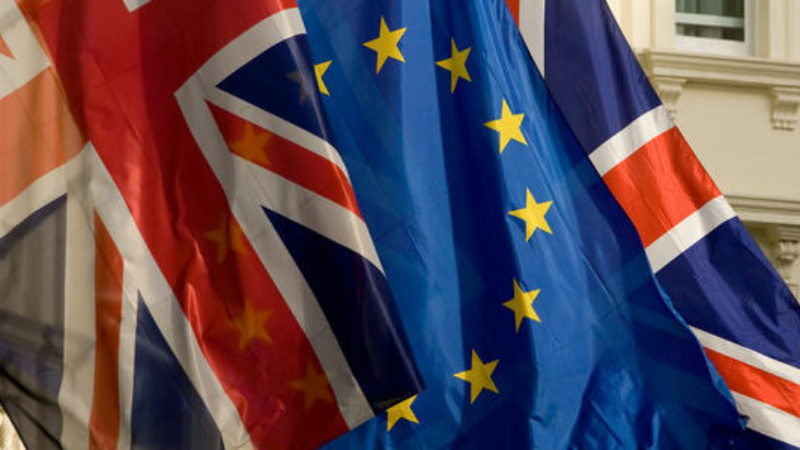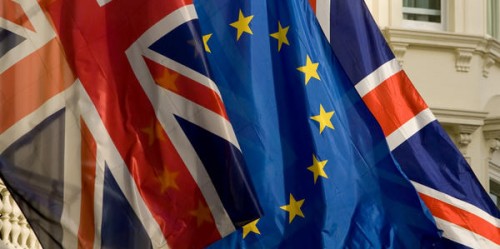

The response to the referendum result is still playing out in both of Britain’s main political parties.
While the last few weeks have given the appearance – in stark contrast to before the referendum – of a united Conservative party and a divided Labour Party, this could change significantly in the coming period.
On the Conservative side, the prime minister is heading toward a hard Brexit, appeasing those on the right wing of her party. She is aiming to leave not just the EU but also:
- the single market – because of its rules on free movement, which they hold to be the reason why Britain cannot control immigration, a view that is largely wrong but which is now given greater importance than the health of the economy
- and the customs union, supposedly to make it easier for Britain to do trade deals with the rest of the world, a view pushed both by neo-liberals aiming for a deregulated “swashbuckling” Britain and by identity politicians dreaming of a resurgent “Anglosphere.”
Taking such an extreme interpretation of Brexit may yet cause the Tory civil war on Europe to re-ignite, as the economic costs of such a policy emerge and traditional friends of the Conservative party in business and finance sound the alarm bells. Already, former Conservative health secretary Stephen Dorrell has vowed to stop Brexit and has taken over the leadership of the European Movement. Several backbenchers are visibly unhappy. It would be surprising if they were to acquiesce to a final Brexit-fairyland deal that damages the economy.
On the Labour side, apparent initial disarray may be coalescing into a coherent strategy.
Up to now, reactions to the referendum covered a spectrum:
- At one end were those who argued that Labour must accept the result of the referendum on democratic grounds and move on.
- At the other end were those who argued that the referendum was only legally advisory, won by a narrow majority on the basis of a pack of lies and a gerrymandered electorate and that the result should not cause Labour to abandon its convictions.
- In between, there were many who argued that there is a mandate for Brexit so long as it actually works for Britain without sinking the economy and bears some resemblance to what was promised by the Leave campaign. As May lurches towards a costly, damaging Brexit, it will become increasingly legitimate to oppose it.
It is around sharpening up this third position that Labour could find unity.
Now that the second reading of the Brexit bill has enabled MPs to formally express their principled post-referendum position, they are freer to cast a critical eye on what a Tory Brexit will mean in practice. As it becomes clearer just how bad this will be, Labour can be more vigorously and visibly critical of May’s Brexit process.
In winding up last week’s parliamentary debate Labour ‘s spokesperson, Jenny Chapman, warned the government that, if they “fail to achieve a deal worthy of our country they will not achieve our consent.”
And it looks increasingly likely that the government will indeed fail to negotiate a deal acceptable to Labour. If May’s hard Brexit is as damaging to jobs, growth, security, trade, research, health, consumer protection, the environment and workers’ rights as Labour and others are warning, it is hard to see how Labour MPs could possibly vote in favour of it.
If the cost of Brexit is seen to grow, then public opinion could move significantly against it. If the government keeps on with its secretive, confusing, shambolic approach, it will lose credibility. When it starts to make questionable deals, it will lose support. And, as John Kerr put it, when they have tested to destruction the assertion that we can have our cake and eat it, Labour must be ready, as the nation looks into the abyss, to reject the Brexit deal and call for a change of mind.
If the article 50 deal is rejected on those grounds, it will be incumbent on the government to withdraw the article 50 notification to allow Britain a chance to reconsider.
Richard Corbett is MEP for Yorkshire and Humber and deputy leader of the Labour group in the European Parliament.




More from LabourList
‘Labour’s quiet quest for democratic renewal’
‘Labour promised to make work pay. Now it must deliver for young people’
‘Council Tax shouldn’t punish those who have the least or those we owe the most’